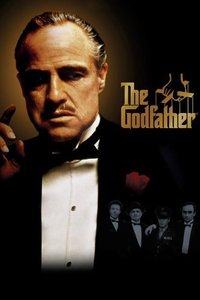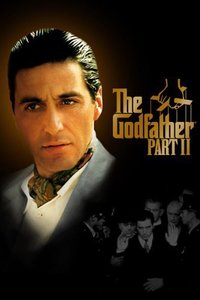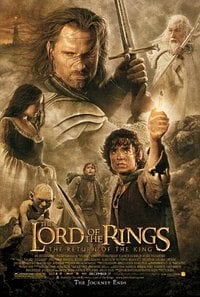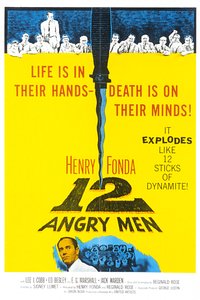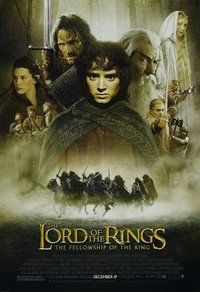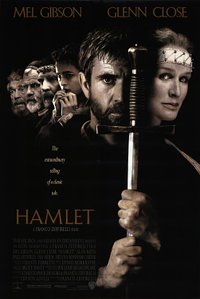
Hamlet Quotes
Hamlet, Prince of Denmark, finds out that his uncle Claudius killed his father to obtain the throne, and plans revenge.
Hamlet: I have of late, but wherefore I know not, lost all my mirth, forgone all custom of exercises; and indeed, it goes so heavily with my disposition that this goodly frame, the earth, seems to me a sterile promontory; this most excellent canopy, the air, look you, this brave o'erhanging firmament, this majestical roof fretted with golden fire! Why, it appears no other thing to me than a foul and pestilent congregation of vapours. What a piece of work is man! How noble in reason! How infinite in faculties! In form and moving, how express and admirable! In action how like an angel! in apprehension, how like a god! The beauty of the world! The paragon of animals! And yet, to me, what is this quintessence of dust?
Polonius: Ophelia, walk you here.
[to Claudius]
Polonius: Gracious, so please you, we will bestow ourselves.
[to Ophelia, handing her a book of prayers]
Polonius: Read on this book. He is coming. Let us withdraw, my lord.
[Hamlet sees Polonius and Claudius sneaking away to hide and eavesdrop. Ophelia looks up and sees him approaching the staircase down to her; she obediently starts walking back and forth, pretending to study the prayers. Hamlet has a pretty good idea what is going on]
Hamlet: Nymph, in thy orisons be all my sins remembered.
Ophelia: Good my lord, how does your honor for this many a day?
Hamlet: I humbly thank you, well.
[He starts to walk away and she hurries after him]
Ophelia: My lord, I have remembrances of yours that I have longèd long to redeliver. I pray you now receive them.
Hamlet: No, not I. I never gave you aught.
Ophelia: My honored lord, you know right well you did, and with them, words of so sweet breath composed as made the things more rich. Their perfume lost, take these again. There, my lord.
[He takes the necklaces, staring at her, then begins to chuckle]
Hamlet: Ha, ha! Are you honest?
Ophelia: My lord?
Hamlet: Are you fair?
Ophelia: What means your lordship?
Hamlet: That if you be honest and fair, your honesty should admit no discourse to your beauty.
Ophelia: [spiritedly] Could beauty, my lord, have better commerce than with honesty?
Hamlet: I did love you once.
Ophelia: Indeed, my lord, you made me believe so.
Hamlet: [Pretending contempt] You should not have believed me. I loved you not! Where's your father?
[Hiding behind a pillar, watching, Claudius and Polonius jump in fear. Horrified to lie to him, Ophelia gives us the first wild-eyed look of fright that will accompany her when she goes mad]
Ophelia: At home, my lord.
Hamlet: [loudly, for the eavesdroppers] Let the doors be shut upon him, that he may play the fool nowhere but in his own house. If thou dost marry, I'll give thee this plague for thy dowry. Be thou as chaste as ice, as pure as snow, thou shalt not escape calumny. Or if thou wilt needs marry, marry a fool, for wise men know well enough what monsters you make of them. I have heard of your paintings, well enough. God hath given you one face and you make yourselves another. You jig and amble, and you lisp, you nickname God's creatures and make your wantonness your ignorance. Go to, I'll no more on 't.
[He shoves her at the wall and she gasps]
Hamlet: It hath made me mad. I say, we will have no more marriage. Those that are married already, all but one, shall live. The rest shall keep as they are.
[He throws the necklaces at her]
[to Claudius]
Polonius: Gracious, so please you, we will bestow ourselves.
[to Ophelia, handing her a book of prayers]
Polonius: Read on this book. He is coming. Let us withdraw, my lord.
[Hamlet sees Polonius and Claudius sneaking away to hide and eavesdrop. Ophelia looks up and sees him approaching the staircase down to her; she obediently starts walking back and forth, pretending to study the prayers. Hamlet has a pretty good idea what is going on]
Hamlet: Nymph, in thy orisons be all my sins remembered.
Ophelia: Good my lord, how does your honor for this many a day?
Hamlet: I humbly thank you, well.
[He starts to walk away and she hurries after him]
Ophelia: My lord, I have remembrances of yours that I have longèd long to redeliver. I pray you now receive them.
Hamlet: No, not I. I never gave you aught.
Ophelia: My honored lord, you know right well you did, and with them, words of so sweet breath composed as made the things more rich. Their perfume lost, take these again. There, my lord.
[He takes the necklaces, staring at her, then begins to chuckle]
Hamlet: Ha, ha! Are you honest?
Ophelia: My lord?
Hamlet: Are you fair?
Ophelia: What means your lordship?
Hamlet: That if you be honest and fair, your honesty should admit no discourse to your beauty.
Ophelia: [spiritedly] Could beauty, my lord, have better commerce than with honesty?
Hamlet: I did love you once.
Ophelia: Indeed, my lord, you made me believe so.
Hamlet: [Pretending contempt] You should not have believed me. I loved you not! Where's your father?
[Hiding behind a pillar, watching, Claudius and Polonius jump in fear. Horrified to lie to him, Ophelia gives us the first wild-eyed look of fright that will accompany her when she goes mad]
Ophelia: At home, my lord.
Hamlet: [loudly, for the eavesdroppers] Let the doors be shut upon him, that he may play the fool nowhere but in his own house. If thou dost marry, I'll give thee this plague for thy dowry. Be thou as chaste as ice, as pure as snow, thou shalt not escape calumny. Or if thou wilt needs marry, marry a fool, for wise men know well enough what monsters you make of them. I have heard of your paintings, well enough. God hath given you one face and you make yourselves another. You jig and amble, and you lisp, you nickname God's creatures and make your wantonness your ignorance. Go to, I'll no more on 't.
[He shoves her at the wall and she gasps]
Hamlet: It hath made me mad. I say, we will have no more marriage. Those that are married already, all but one, shall live. The rest shall keep as they are.
[He throws the necklaces at her]
[Hamlet descends the stairs to the sepulcher, to visit his father's tomb. His eyes are red with grief. He looks around warily, as though wondering if the Ghost might appear. He's depressed on many accounts: he's just frightened Ophelia, whom he loves; he himself is frightened by the Ghost's command to kill his uncle; he's been playing a madman all this time in order to kill his uncle, and he is afraid to continue to do any of these things]
Hamlet: To be, or not to be, that is the question. Whether 'tis nobler in the mind to suffer the slings and arrows of outrageous fortune, or to take arms against a sea of troubles and by opposing, end them. To die, to sleep no more...
[He gazes at the skeletons residing in niches of the sepulcher]
Hamlet: ...and by a sleep to say...
[He finally comes to his father's tomb]
Hamlet: ...we end the heartache and the thousand natural shocks that flesh is heir to!
[Hamlet rests his fists upon his father's tomb, closes his eyes, and shapes his hands into prayer position]
Hamlet: 'Tis a consummation devoutly to be wished! To die, to sleep. To sleep -
[in alarm at the idea, he stands and paces]
Hamlet:
[He lays his head upon his father's tomb]
Hamlet: [viciously] For who would bear the whips and scorns of time, the oppressor's wrong, the proud man's contumely, the pangs of despised love, the law's delay, the insolence of office, and the spurns that patient merit of the unworthy takes, when he himself might his quietus make with a bare bodkin?
[He stares at the ground, near to weeping]
Hamlet: Who would fardels bear, to grunt and sweat under a weary life, but that the dread of something after death, the undiscovered country from whose bourn no traveler returns, puzzles the will, and makes us rather bear those ills we have than fly to others that we know not of?
[He looks at the ceiling, or to Heaven]
Hamlet: Thus conscience does make cowards of us all...
Hamlet: To be, or not to be, that is the question. Whether 'tis nobler in the mind to suffer the slings and arrows of outrageous fortune, or to take arms against a sea of troubles and by opposing, end them. To die, to sleep no more...
[He gazes at the skeletons residing in niches of the sepulcher]
Hamlet: ...and by a sleep to say...
[He finally comes to his father's tomb]
Hamlet: ...we end the heartache and the thousand natural shocks that flesh is heir to!
[Hamlet rests his fists upon his father's tomb, closes his eyes, and shapes his hands into prayer position]
Hamlet: 'Tis a consummation devoutly to be wished! To die, to sleep. To sleep -
[in alarm at the idea, he stands and paces]
Hamlet:
[He lays his head upon his father's tomb]
Hamlet: [viciously] For who would bear the whips and scorns of time, the oppressor's wrong, the proud man's contumely, the pangs of despised love, the law's delay, the insolence of office, and the spurns that patient merit of the unworthy takes, when he himself might his quietus make with a bare bodkin?
[He stares at the ground, near to weeping]
Hamlet: Who would fardels bear, to grunt and sweat under a weary life, but that the dread of something after death, the undiscovered country from whose bourn no traveler returns, puzzles the will, and makes us rather bear those ills we have than fly to others that we know not of?
[He looks at the ceiling, or to Heaven]
Hamlet: Thus conscience does make cowards of us all...
Hamlet: Alas, poor Yorick! I knew him, Horatio - a fellow of infinite jest, of most excellent fancy. He hath bore me on his back a thousand times, and now how abhorred in my imagination it is! My gorge rises at it. Here hung these lips that I have kissed I know not how oft. Where be your gibes now? Your gambols? Your songs? Your flashes of merriment that were wont to set the table on a roar?
Hamlet: Now mother, what's the matter?
Gertrude: Hamlet, thou hast thy father much offended.
Hamlet: Mother, you have *my* father much offended.
Gertrude: Come, come, you answer with an idle tongue.
Hamlet: Go, go, you question with a wicked tongue!
Gertrude: Why, how now, Hamlet?
Hamlet: What's the matter now?
Gertrude: Have you forgot me?
Hamlet: No by the rood, not so! You are the queen, your husband's brother's wife!
Gertrude: Hamlet, thou hast thy father much offended.
Hamlet: Mother, you have *my* father much offended.
Gertrude: Come, come, you answer with an idle tongue.
Hamlet: Go, go, you question with a wicked tongue!
Gertrude: Why, how now, Hamlet?
Hamlet: What's the matter now?
Gertrude: Have you forgot me?
Hamlet: No by the rood, not so! You are the queen, your husband's brother's wife!
Hamlet, Prince of Denmark: To be, or not to be: that is the question: Whether 'tis nobler in the mind to suffer the slings and arrows of outrageous fortune, Or to take arms against a sea of troubles, And by opposing end them? To die: to sleep; No more; and by a sleep to say we end The heart-ache and the thousand natural shocks That flesh is heir to, 'tis a consummation Devoutly to be wish'd. To die, to sleep; To sleep: perchance to dream: ay, there's the rub; For in that sleep of death what dreams may come When we have shuffled off this mortal coil, Must give us pause: there's the respect That makes calamity of so long life; For who would bear the whips and scorns of time, The oppressor's wrong, the proud man's contumely, The pangs of despised love, the law's delay, The insolence of office and the spurns That patient merit of the unworthy takes, When he himself might his quietus make With a bare bodkin? Who would fardels bear, To grunt and sweat under a weary life, But that the dread of something after death, The undiscover'd country from whose bourn No traveller returns, puzzles the will And makes us rather bear those ills we have Than fly to others that we know not of? Thus conscience does make cowards of us all; And thus the native hue of resolution Is sicklied o'er with the pale cast of thought, And enterprises of great pith and moment With this regard their currents turn awry, And lose the name of action.
[first lines]
Narrator: So oft it chances in particular men / That through some vicious mole of nature in them, / By the o'ergrowth of some complexion / Oft breaking down the pales and forts of reason, / Or by some habit grown too much; that these men - / Carrying, I say, the stamp of one defect, / Their virtues else - be they as pure as grace, / Shall in the general censure take corruption / From that particular fault... This is the tragedy of a man who could not make up his mind.
Narrator: So oft it chances in particular men / That through some vicious mole of nature in them, / By the o'ergrowth of some complexion / Oft breaking down the pales and forts of reason, / Or by some habit grown too much; that these men - / Carrying, I say, the stamp of one defect, / Their virtues else - be they as pure as grace, / Shall in the general censure take corruption / From that particular fault... This is the tragedy of a man who could not make up his mind.
Hamlet: Whose grave is this sir?
First Gravedigger: Mine sir.
[Resumes singing his ditty]
Hamlet: [Interrupts] I think it be thine indeed, for thou liest in't.
First Gravedigger: You lie out on't sir, and therefore it is not yours. For my part I do not lie ins't and yet it is mine.
Hamlet: Thou dost lie in't to be in't, and say 'tis thine. 'Tis for the dead not for the quick, therefore thou liest.
First Gravedigger: 'Tis a quick lie, sir. 'Twill away again from me to you.
First Gravedigger: Mine sir.
[Resumes singing his ditty]
Hamlet: [Interrupts] I think it be thine indeed, for thou liest in't.
First Gravedigger: You lie out on't sir, and therefore it is not yours. For my part I do not lie ins't and yet it is mine.
Hamlet: Thou dost lie in't to be in't, and say 'tis thine. 'Tis for the dead not for the quick, therefore thou liest.
First Gravedigger: 'Tis a quick lie, sir. 'Twill away again from me to you.

